A website is usually the initial point of contact between a company and its potential clients. As technology and user behaviour evolve, it's critical to keep your website relevant and effective. A website makeover can provide several advantages, including improved user experience, more conversions, and improved search engine optimization. But when is it appropriate to invest in a redesign?
In this article, we'll look at important symptoms that it's time to redesign your website, as well as how to decide whether a redesign is the best option for your company.
Some of the reasons why you must consider redesigning your website are as follows:
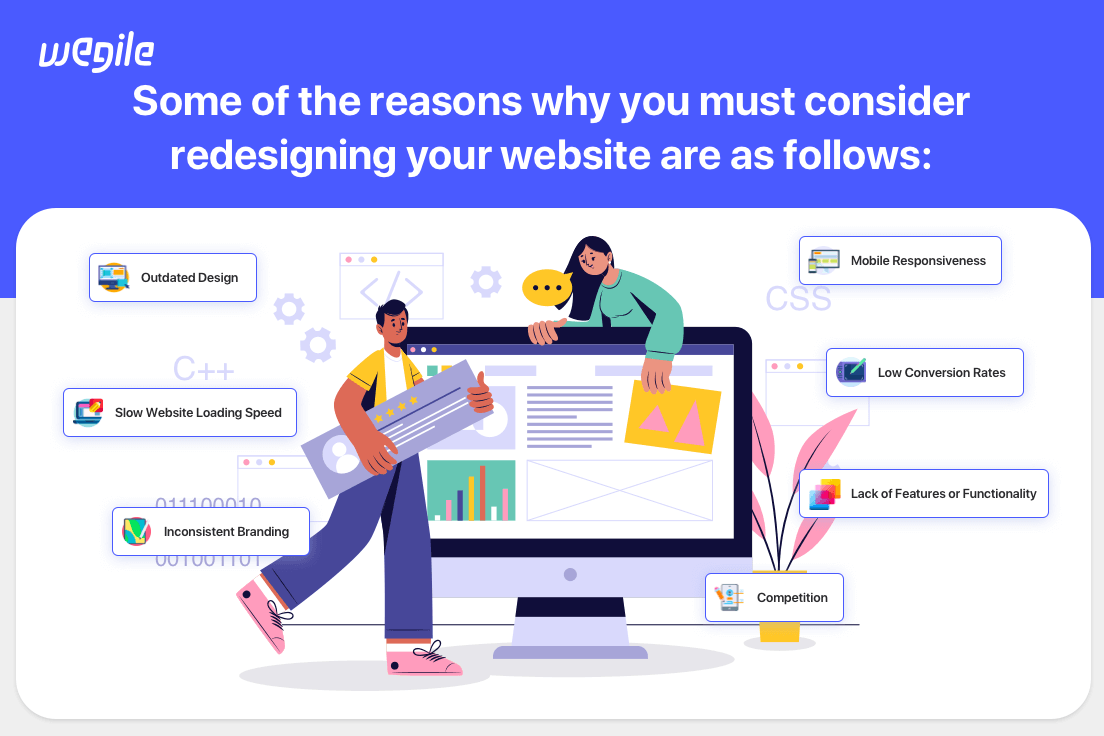
If your website has a dated appearance and feels, a makeover may be necessary to bring it into compliance with modern design norms and enhance its overall visual appeal.
With the increasing popularity of mobile devices, it is crucial that your website be optimized for use across a range of screen sizes and gadgets.
A slow website can ruin the user experience and turn away visitors. Redesigning a website can increase page load times and keep users interested.
Your website may need a makeover to increase its usefulness and efficiency if it isn't producing the intended outcomes, like leads or sales.
A redesign can assist to make sure that your website reflects the overall identity and messaging of your company.
A redesign will provide you the chance to add new features and functionality to your website, such as interactive elements or e-commerce capabilities.
It's essential to keep up with your rivals and stay on top of the game. Your website can become more contemporary and competitive with a redesign.
A website redesign can bring numerous benefits to your business. Some of them are as follows:
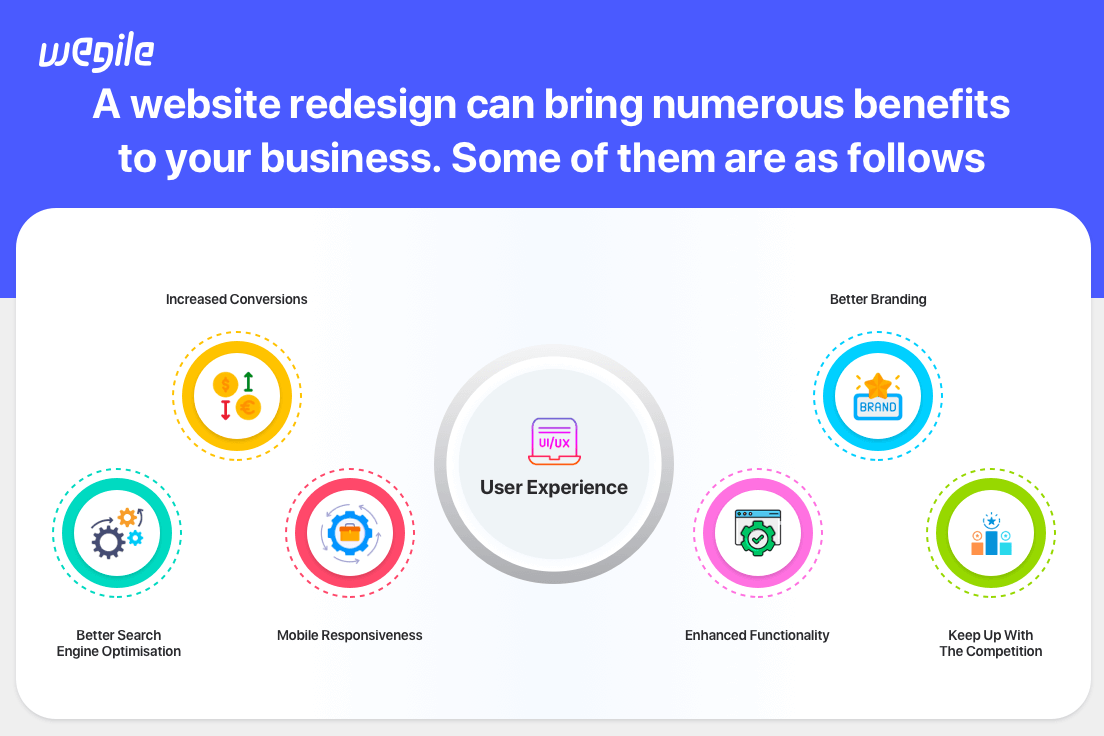
By making navigation more intuitive, the page loads faster, and the overall design is more aesthetically pleasing. A website redesign can improve user experience overall.
By making it easier for visitors to find what they're looking for, offering crystal-clear calls to action, and enhancing overall trust and trustworthiness, a well-designed website can help generate more conversions.
By making the website more search engine friendly, adding keywords and meta descriptions, and improving the overall site structure and content, a website redesign can boost SEO.
In today's mobile-driven world, it's crucial that your website be optimized for viewing on a variety of devices, including smartphones and tablets.
By matching the site's design with your overall brand identity, a website makeover can assist reinforce the brand message and increase brand consistency.
You may be able to add additional features and functionality, like e-commerce capabilities, forms, and interactive elements, with a redesign.
By providing a contemporary, expert, and user-friendly experience, a well-designed website may help you keep up with the competition.
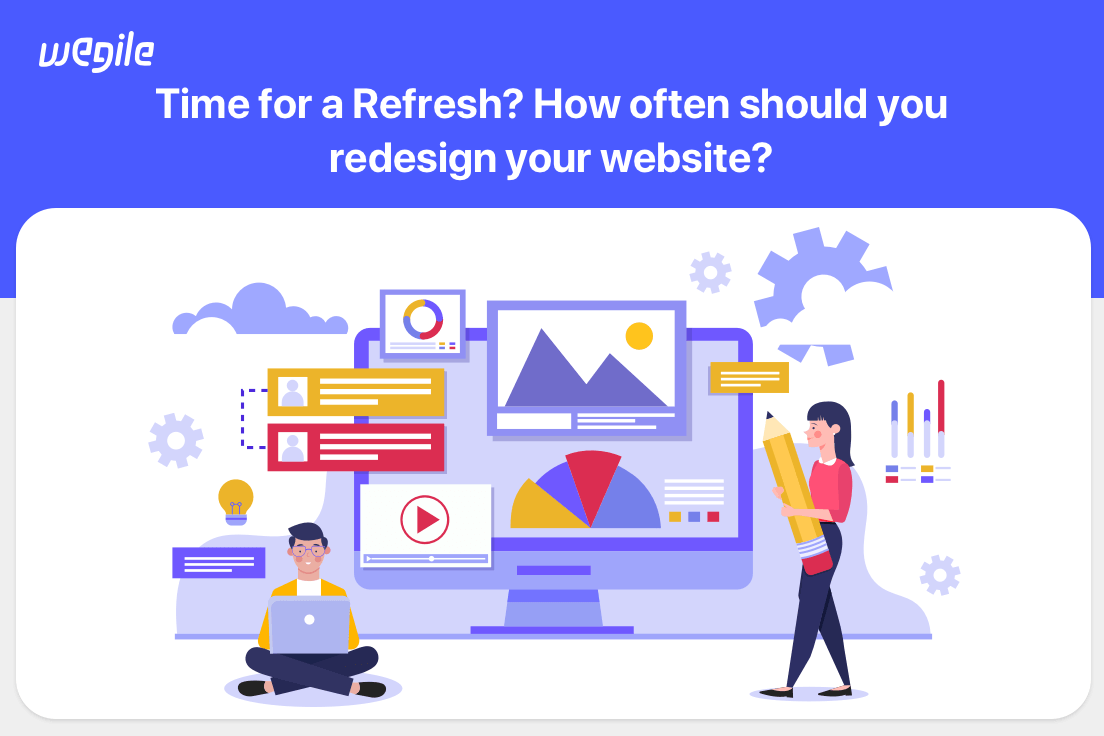
The frequency with which you redesign your website is determined by distinctive factors, including the size and complexity of the site, your industry, and the rate at which technology and design trends advance. In general, a redesign should be considered every 2-3 years or sooner if any of the difficulties outlined above are identified. Smaller updates and adjustments, on the other hand, can be done more often to keep your website fresh and functional.
It's also important to monitor and evaluate your website's performance and user experience on a regular basis and to make adjustments and improvements as appropriate. This can assist in keeping your website relevant, successful, and up-to-date without requiring a major makeover.
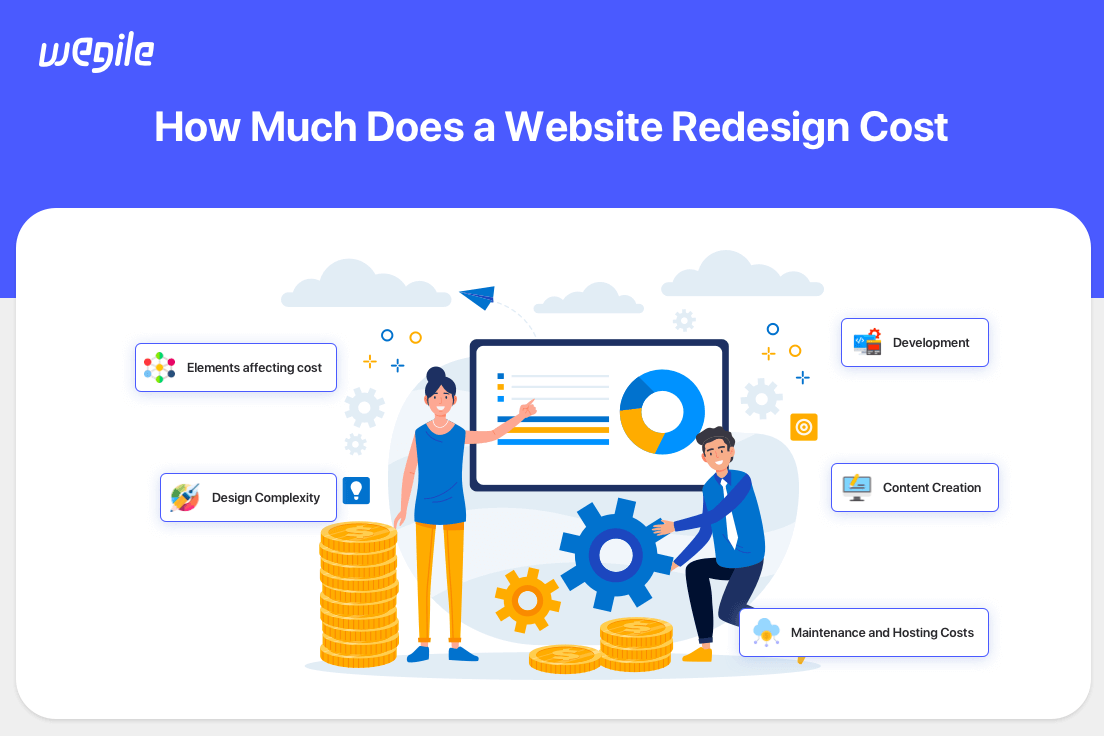
Based on the project's scale, the site's complexity, and the services offered, the price of a website redesign might vary greatly. A unique website with sophisticated features and functionality might cost hundreds of thousands of dollars or more. On the other hand, a straightforward website redesign can cost a thousand to ten thousand dollars.
The total cost can be affected by the complexity of the design, which includes the number of pages, the usage of bespoke graphics, and the integration of features and functions.
Depending on the technology utilized and the complexity of the site, the cost of development, which includes coding, testing, and deployment, can change.
The price of content development, including copywriting, photography, and video production, might have an effect on the redesign's overall cost.
These expenses, which cover updates, security, and technical support, may also be taken into consideration.
Working with a trustworthy and professional web design and development company is essential for the success and profitability of your redesign project. Before beginning the project, be sure to talk through your budget and goals with the company and obtain a precise price.
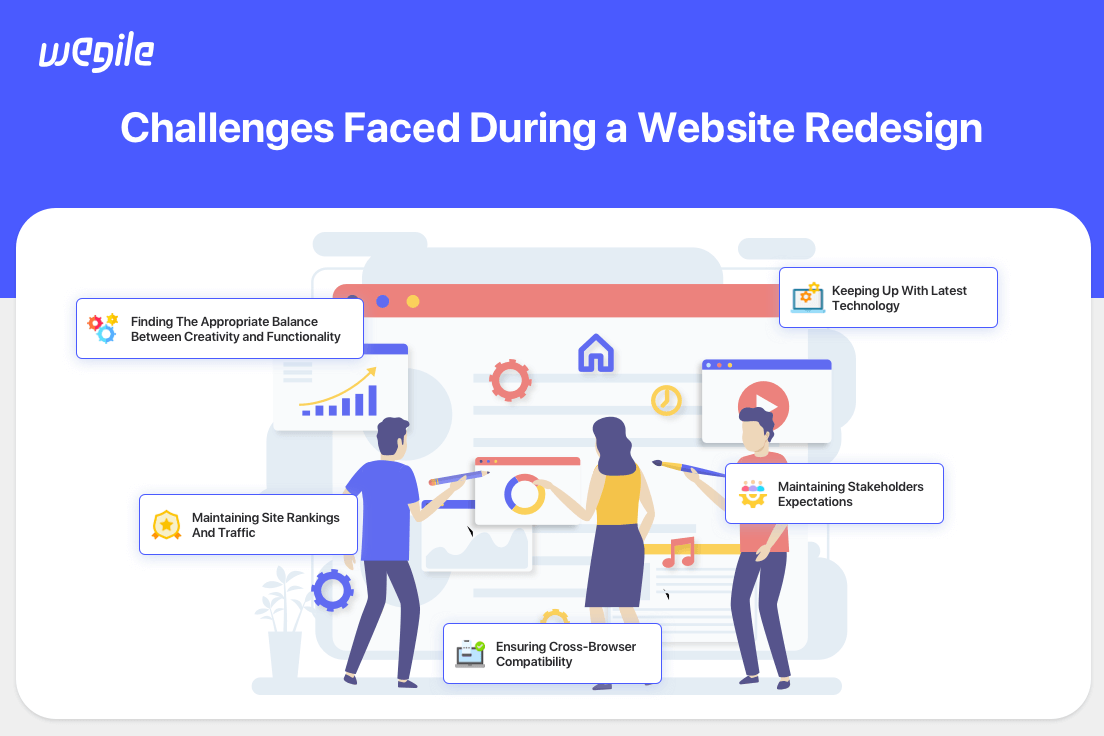
Finding the right balance between a visually appealing design and a practical and user-friendly site can be difficult.
It is critical to maintain site rankings and visitors during a redesign, as a substantial decline in traffic can have a negative impact on your business.
Keeping up with the latest technologies and design trends can be difficult, particularly for people with limited technical knowledge.
It can be difficult to manage stakeholder expectations and ensure that each one of them is on the same page, especially with larger or more complicated redesign initiatives.
It can be challenging to ensure that the site functions effortlessly across all major browsers and devices, especially when using complex design features.
A website redesign can provide a variety of benefits, including improved user experience, greater conversions, and improved search engine optimization. It can be difficult to understand when it's time for a redesign, but it's generally a good idea to think about it every 2-3 years or sooner if you see any problems with your current site.
Since the cost of a redesign can vary greatly depending on the extent of the project and the services included, it's critical to engage with a reputable web design and development business and have a clear grasp of your budget and goals before beginning the project. By analyzing and updating your website on a regular basis, you can ensure that it remains relevant, effective, and up-to-date.
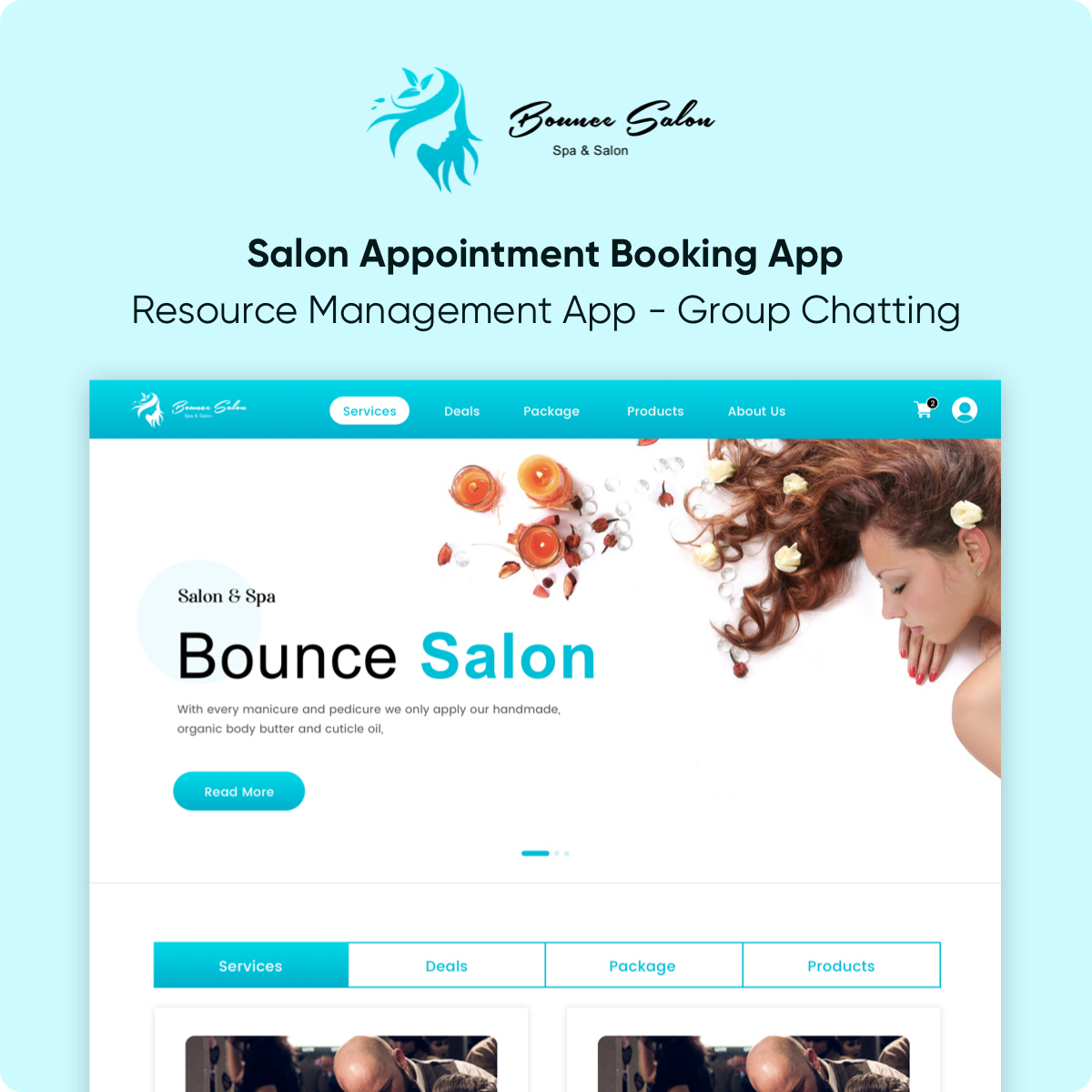

 Browse Our Services
Browse Our Services
